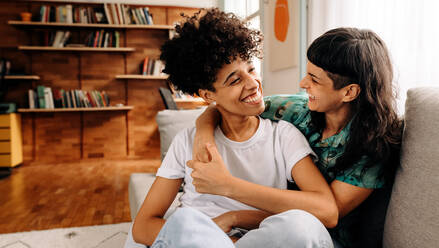Beyond the Margins: Finding Power as Queer & Black in the Global South
In narratives of identity and empowerment, the voices from the Global South are often marginalized, and within those, the experiences of Queer and Black individuals can be rendered almost invisible. Yet, against this backdrop, incredible stories of resilience, self-discovery, and profound strength are emerging.
- Ornella Jameson
- Jul 04, 2025
- 0 Comments
- 2817 Views
This article is an exploration of that journey: stepping "Beyond the Margins" to reclaim narratives, challenge norms, and ultimately, find immense personal power in spaces historically designed to diminish it. Join us as we amplify the vibrant, multifaceted realities of finding voice and strength at the intersection of these identities.
1. Legacies of Inequality: The Challenges Facing Black Women in the Global South
Across Africa, Latin America, the Caribbean, and parts of Asia, Black women have long navigated the intersecting forces of colonialism, racism, and patriarchy. Colonial histories imposed systems that marginalized Black women economically, politically, and socially—legacies that persist today in many forms. In numerous countries, Black women are underrepresented in government, face wage gaps, and are more likely to experience poverty and limited access to education and healthcare.
Cultural stereotypes and gender norms often confine Black women to the margins of society. They may be expected to shoulder the burdens of family and community care while being denied leadership roles or recognition for their contributions. In addition, violence against women, including domestic abuse and gender-based violence, remains a significant barrier to equality and safety.
2. Resilience and Leadership: How Black Women Forge Paths to Power
Despite these obstacles, Black women in the Global South have developed remarkable strategies of resilience and leadership. Across the continent and diaspora, women have been at the forefront of grassroots movements, advocating for land rights, access to education, reproductive health, and political participation.
In Nigeria, women’s collectives have led campaigns for peace and against violence. In Brazil, Black women have organized to challenge racism and demand justice for victims of police brutality. Across the Caribbean, women have been central to movements for economic justice and environmental protection. Their leadership is often rooted in community, drawing on traditions of mutual aid, storytelling, and intergenerational wisdom.
Education and entrepreneurship have also become powerful tools for empowerment. Black women are increasingly starting businesses, leading NGOs, and pursuing higher education, breaking cycles of poverty and inspiring future generations.
3. Building the Future: Solidarity, Innovation, and Global Influence
The power of Black women in the Global South is not only found in resistance but also in their vision for the future. By building networks of solidarity—locally, regionally, and globally—Black women are amplifying their voices and influencing policy. International forums, digital platforms, and cultural exchanges have enabled new forms of collaboration and advocacy.
Innovation is another hallmark of Black women’s empowerment. From pioneering health initiatives to launching tech startups and creative enterprises, Black women are redefining what leadership looks like in the 21st century. Their stories of overcoming adversity and driving change are inspiring movements well beyond their own communities.
Ultimately, the journey of Black women in the Global South is about moving beyond the margins—claiming space, shaping narratives, and building futures where dignity, equality, and power are not just aspirations, but realities
Black women in the Global South continue to transform their societies through resilience, leadership, and innovation. Their stories remind us that true progress comes when those at the margins become architects of their own destinies.

 | Unlock Success with Our Guide
| Unlock Success with Our Guide



0 Comments